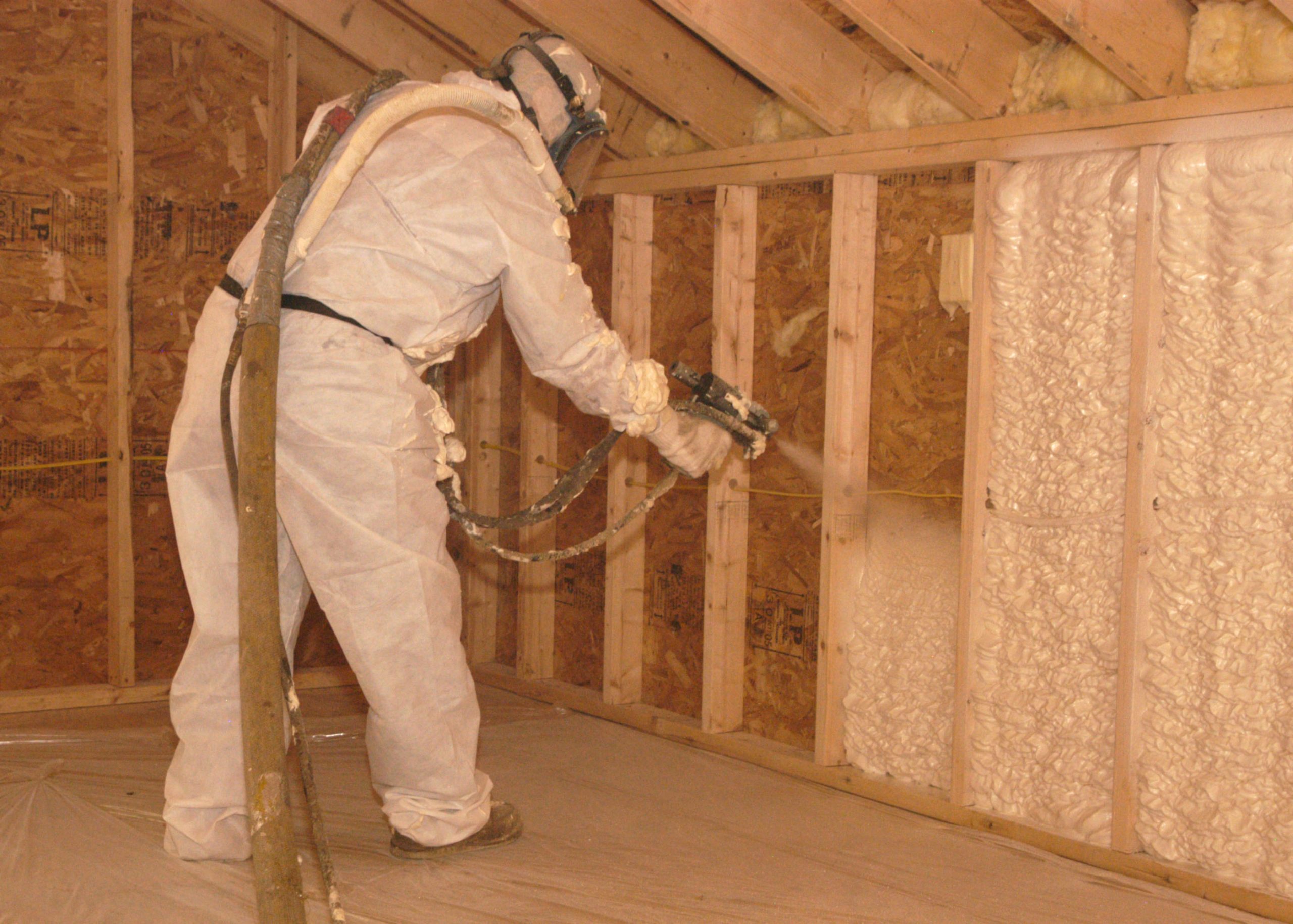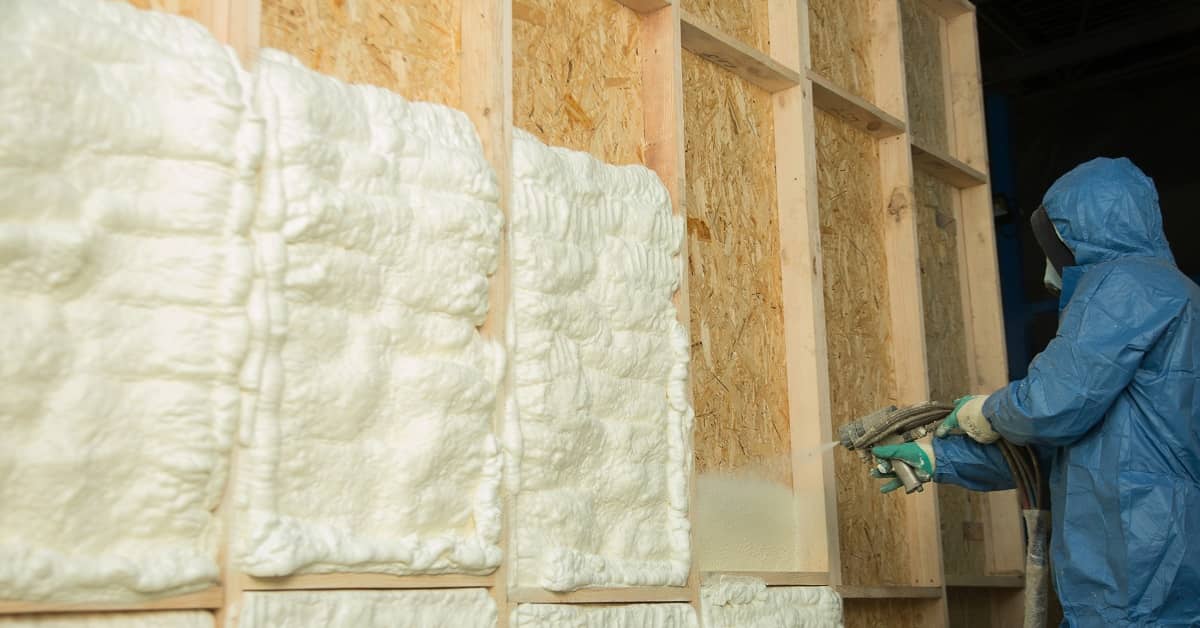Choosing the right spray foam insulation contractor in Round Rock, TX, can directly affect long-term energy efficiency, indoor comfort, and building durability. Knowing which questions to ask before starting a project ensures the right expertise, materials, and approach are in place. This article outlines key questions to raise when hiring insulation pros and explains why each matters for residential and commercial property owners.
What Qualifications Should Your Insulation Contractor Have?
Before any insulation project begins, it’s important to confirm that the contractor meets licensing, safety, and technical benchmarks. These qualifications reflect not only legal compliance but also project reliability.
Licenses and Certifications to Verify
- State and city contractor licenses valid in Round Rock
- OSHA safety certifications
- Spray foam application training (SPFA certifications or equivalent)
Experience with Building Types
Look for experienced insulation teams that can demonstrate work with:
- Residential homes (attic, wall, crawlspace)
- Commercial spaces (retail, office, warehouse)
- Agricultural or mixed-use buildings
Insurance and Warranty Backing
- General liability and worker’s compensation insurance
- Written material warranties (10–25 years)
- Installation or workmanship guarantees
How Do Local Insulation Experts Handle Assessments?
A detailed assessment lays the groundwork for accurate material recommendations and application techniques. Understanding what the evaluation includes reveals how thorough the contractor’s planning is.
Before any insulation work begins, the assessment process should involve multiple steps to get an accurate understanding of the building’s thermal performance and structural needs.
Property Walkthrough and Existing Material Review
An insulation team starts by inspecting attics, walls, crawl spaces, and other key areas. The goal is to evaluate the current state of the insulation—looking for thin coverage, material degradation, or signs of moisture issues. This walkthrough also reveals structural elements that affect air movement and thermal flow.
Use of Diagnostic Tools
Thermal imaging and blower door testing are common in comprehensive evaluations. Infrared thermal imaging detects hidden air leaks and insulation gaps that aren’t visible during a standard walkthrough. Blower door tests allow professionals to gauge building envelope pressure and quantify air exchange rates. Moisture meters help locate areas where water vapor might be trapped behind walls or in roof assemblies.
Assessment of Air Leakage and Moisture Risks
By examining the property’s construction details and ventilation patterns, insulation pros determine how air and moisture behave throughout the space. This includes evaluating gaps around windows, doors, and roof penetrations. Teams check whether the building has sufficient vapor control to prevent condensation from forming inside walls and ceilings.
What Types of Insulation Are Offered?
Knowing the available insulation materials—and their best use cases—helps choose a method that supports long-term energy goals. Not all insulation types suit every project.
Common Insulation Types Offered by Contractors
- Open-cell spray foam: Ideal for sound dampening and interior cavities
- Closed-cell spray foam: Moisture-resistant, high R-value, great for roofing and exterior
- Blown-in fiberglass: Cost-effective for attic retrofits
- Mineral wool: Fire-resistant, denser material for commercial walls
Material Comparison Table
| Material Type | Best For | R-Value per Inch | Moisture Barrier | Sound Dampening |
|---|---|---|---|---|
| Open-Cell Spray Foam | Interior walls, ceilings | 3.5–4.0 | No | High |
| Closed-Cell Spray Foam | Roofs, exterior, basements | 6.5–7.0 | Yes | Medium |
| Blown-In Fiberglass | Attics, retrofit walls | 2.2–2.9 | No | Low |
| Mineral Wool | Fire-resistant commercial walls | 3.7–4.2 | Yes | High |
How Do Professional Insulation Teams Ensure Energy Efficiency?
Insulation alone won’t solve inefficiency unless paired with proper sealing, ventilation, and placement. Ask how contractors design installations for maximum return.
Air Sealing Integration
Insulation specialists in Round Rock should include:
- Caulking and spray foam around windows and doors
- Sealing gaps around electrical and plumbing penetrations
- Addressing attic bypasses and ductwork leaks
HVAC Interaction
Ask if the insulation plan:
- Considers duct layout and condition
- Avoids blocking HVAC airflow
- Accounts for future equipment upgrades
Energy Modeling Support
Some insulation pros provide:
- Pre- and post-installation energy modeling
- Estimated ROI for insulation upgrades
What is the Project Timeline and Process?
Reliable insulation contractors should offer clear timelines and explain each phase of the job. Delays or miscommunication can lead to unplanned costs or safety concerns.
Pre-Installation Steps
- Site inspection and measurement
- Proposal and written estimate
- Permit application, if required
Installation Sequence
- Prep and protective coverings
- Old insulation removal (if applicable)
- Spray foam or blown-in application
- Final cleanup and walkthrough
Duration by Project Type
- Attic insulation (spray foam): 1–2 days
- Full home retrofit: 2–4 days
- Commercial space: 3–6+ days depending on square footage
What Are the Contractor’s Safety Practices?
Spray foam insulation requires proper ventilation, handling, and PPE. Missteps in safety procedures can harm installers or occupants.
Safety Protocols to Confirm
- Use of fresh-air systems during spraying
- PPE for all workers, including masks, gloves, suits
- Ventilation plan for occupied spaces
Post-Installation Safety
- Cure time before re-entry (typically 24 hours)
- VOC monitoring for indoor air quality
- Safe disposal of old insulation or debris
How Is Quality Control Maintained?
Ask about checks during and after the project to ensure complete coverage and long-term reliability.
In-Progress Monitoring
- On-site supervisor present at all times
- Photo documentation or infrared scanning
- Moisture testing prior to application
Final Inspection and Testing
- Walkthrough to confirm coverage
- Client sign-off with scope verification
- Follow-up visit or call within 7–10 days
What Post-Installation Support Is Available?
Strong follow-up practices set trusted home insulation names apart. Ask what happens after the job ends.
Available Support
- Maintenance guides and tips
- Warranty activation documents
- Seasonal inspection services
Troubleshooting Procedures
- Response window for concerns
- Contact person for follow-ups
- Emergency air quality checks if needed
Common Questions About Choosing a Local Insulation Expert
Here’s a direct roundup of important concerns home energy specialists often address during project planning.
How long does spray foam last?
High-quality spray foam can last over 30 years if installed properly and protected from UV exposure or water damage.
Does insulation help with indoor noise?
Yes. Open-cell spray foam and mineral wool reduce airborne sound transmission between rooms and floors.
Can insulation be added over old materials?
Not always. Some insulation pros recommend full removal to prevent moisture issues or compressed R-values.
Are eco-friendly insulation providers available in Round Rock?
Yes. Several certified insulation experts in the area offer low-emission spray foam and recyclable fiberglass options.
Is spray foam safe for people with allergies?
Once fully cured, closed-cell and open-cell foams are inert. Initial application requires safety precautions, but post-curing, they emit no allergens.
Ready to Achieve Energy-Efficient Indoor Performance?
Proper insulation improves building durability, indoor air quality, and energy savings year-round. Choosing a reliable insulation contractor is key to achieving lasting performance improvements.
Spray Foam Tech TX delivers consistent results across residential and commercial applications in Round Rock, TX. Every project is evaluated with care, tailored to the property’s needs, and supported by experienced insulation teams who value long-term energy performance.
Call (737) 777-9590 or email [email protected] to schedule a site assessment.
FAQs
What insulation works best for humid areas like Round Rock? Closed-cell spray foam is ideal. It resists moisture intrusion, strengthens wall assemblies, and helps reduce mold risk.
How do insulation specialists calculate R-values for projects? They consider local climate data, building design, and cavity depth. R-value targets are based on these parameters, ensuring optimal thermal resistance.
Can insulation fix drafty rooms? Yes, when combined with proper air sealing. Targeting wall penetrations, attic access, and duct gaps will significantly reduce drafts.
What should I expect during a home insulation upgrade? Expect 1–3 days of access limitations, installation noise, and post-job cleanup. Work zones are usually isolated to avoid disruption.
Do insulation pros in Round Rock offer removal of old materials? Many provide removal services, especially when replacing fiberglass or addressing mold/moisture problems in attics or crawlspaces.
Reviewer: Maria Lopez reviewed the article and brought 12 years of insulation industry experience to improve the guidance. Practical tips were added, and the content was made clearer and more useful for contractors working in the field every day.

